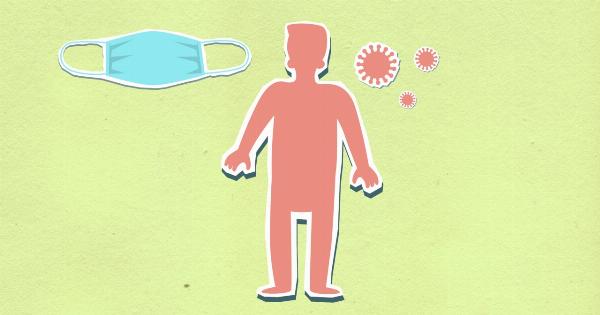Rotavirus is one of the most common causes of gastroenteritis in young children. It is a highly contagious disease that spreads from person-to-person, and can be extremely dangerous to infants.
Rotavirus can cause severe diarrhea, vomiting, abdominal pain, and fever, and can lead to dehydration, hospitalization, and even death in severe cases. In this guide, we will explore some of the best ways to prevent Rotavirus and keep you and your loved ones safe.
What is Rotavirus?
Rotavirus is a virus that infects the digestive system. It is typically spread through contact with fecal matter and can infect people of all ages, but is most common in young children.
The virus attacks the lining of the digestive system and causes inflammation, leading to severe symptoms such as vomiting, diarrhea, fever, and stomach cramps. In some cases, the symptoms can be so severe that hospitalization is required.
How is Rotavirus transmitted?
Rotavirus is primarily transmitted through contact with fecal matter, which can happen in a number of ways:.
- Direct contact with an infected person’s feces during diaper changes or while caring for someone who is sick.
- Indirect contact with surfaces that have been contaminated with feces, such as toys or food utensils.
- Ingesting contaminated food or water.
Who is at risk for Rotavirus?
Anyone can contract Rotavirus, but young children are at the highest risk for the disease. Infants between the ages of 6 months and 2 years are most likely to become infected, although children up to age 5 can be infected as well.
Adults can become infected with Rotavirus, but the symptoms are typically less severe.
How to prevent Rotavirus
There are several effective ways to prevent Rotavirus. Here are some of the most important:.
1. Vaccination
The Rotavirus vaccine is the most effective way to prevent Rotavirus infection. The vaccine is typically given to infants in two or three doses, depending on the brand of vaccine.
It is recommended that children receive the vaccine before they are 8 months old.
2. Practice good hygiene
One of the best ways to prevent Rotavirus is to practice good hygiene. This means washing hands regularly with soap and water, especially after using the bathroom, changing a diaper, or caring for someone who is sick.
It is also important to clean and disinfect surfaces that may be contaminated with feces, such as toys, cribs, and high chairs.
3. Avoid close contact with sick people
Rotavirus is highly contagious, so it is important to avoid close contact with people who are sick. This is especially important for young children, who are at the highest risk for the disease.
If you or someone in your household becomes sick with Rotavirus, it is important to stay home until the symptoms subside.
4. Cook food thoroughly
Rotavirus can be transmitted through contaminated food, so it is important to cook food thoroughly to kill any potential viruses or bacteria. It is also important to wash fruits and vegetables thoroughly before eating.
5. Avoid sharing food or drinks
Sharing utensils, cups, or bottles can increase the risk of Rotavirus transmission, so it is important to avoid sharing these items with others.
Risk factors for Rotavirus
There are several risk factors that can increase the likelihood of rotavirus infection:.
- Young age: Infants and young children are at the highest risk for Rotavirus.
- Lack of vaccination: Children who have not received the Rotavirus vaccine are more likely to become infected.
- Poor hygiene: People who do not practice good hygiene, such as washing hands regularly, are at a higher risk for Rotavirus.
- Crowded living conditions: People who live in crowded or communal living spaces, such as dormitories or military barracks, are at a higher risk for Rotavirus.
- Travel to high-risk areas: People who travel to areas with poor sanitation and hygiene practices are at a higher risk for Rotavirus infection.
When to seek medical attention
If you or a loved one show symptoms of Rotavirus, it is important to seek medical attention right away. Some of the symptoms of Rotavirus, such as severe dehydration, can be life-threatening if left untreated.
If you or someone in your household is experiencing severe vomiting, diarrhea, or dehydration, seek medical attention immediately.
In conclusion
Rotavirus is a highly contagious disease that can be extremely dangerous, especially for young children.
However, there are several effective ways to prevent Rotavirus, including vaccinations, good hygiene practices, and avoiding close contact with sick people. If you or someone in your household shows symptoms of Rotavirus, seek medical attention immediately to avoid complications.































